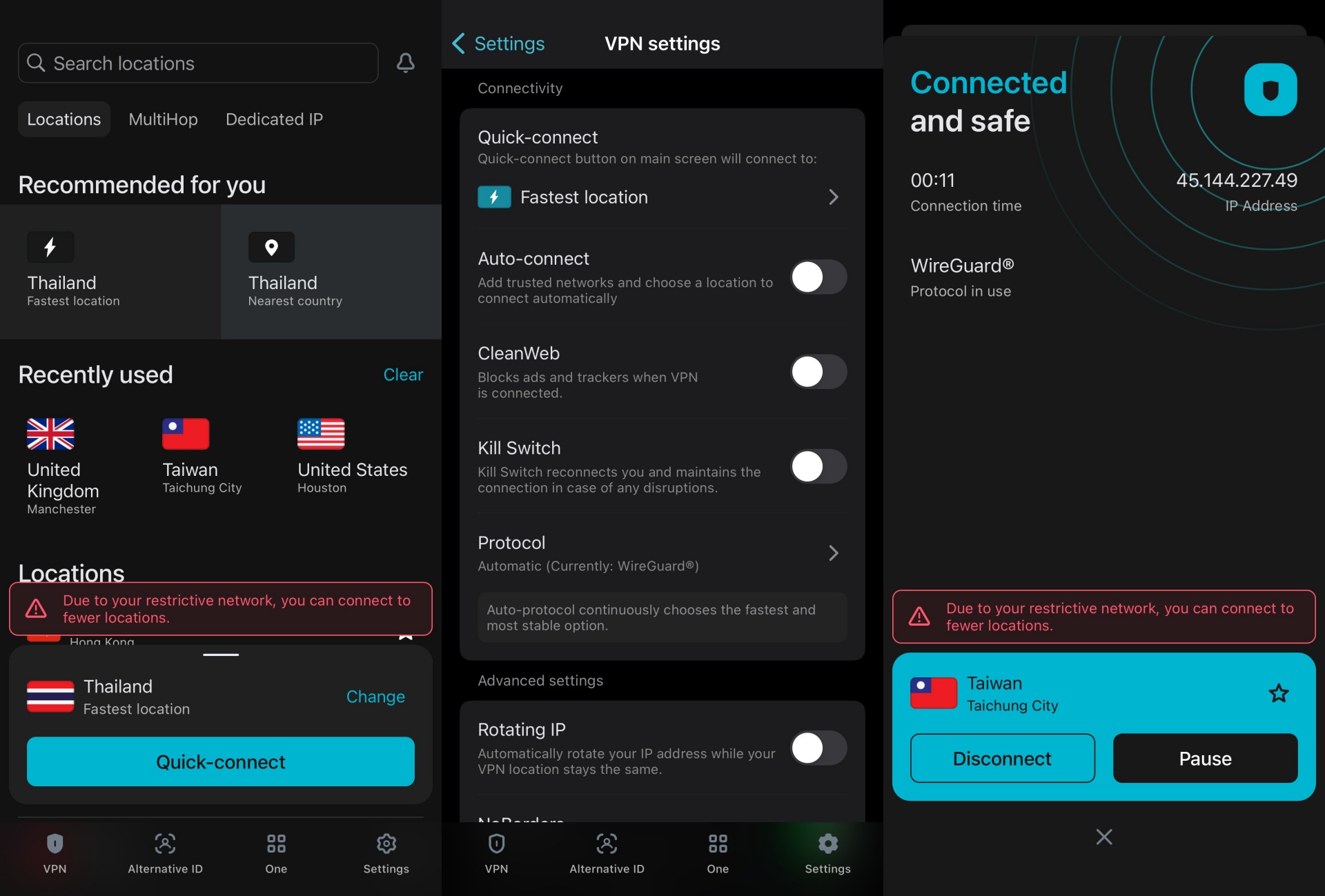On a recent trip to China, Shenzhen to be more specific, part of my preparations involved downloading and setting up a Virtual Private Network (VPN) app.
Watch any YouTube video these days, and you’ll know there are a swathe of VPN options to choose from, with promo codes for discounts being dished out at will. I was of the opinion that most VPNs are about the same, for all intents and purposes, and the only real differences were pricing, length of trial periods, and the number of devices that you could have on a single profile.
As it turns out, however, that is far from the case. This is something I learned on that week-long stay in China.
Prior to the flight to Shenzhen, I signed up for and downloaded ExpressVPN. It was my go-to VPN during a trip to Beijing in 2019, and it did the trick as far as ensuring connectivity was concerned. A lot can change in five years though, and now there is the macOS version of the app simply does not work.
This is odd as a guide to set it up exists as recently as 17th April this year, but when you touch down in China, you’re often at the whim of whatever level of connectivity you can muster.
The iOS and iPadOS versions of ExpressVPN still worked though, so I was not completely in the lurch, and seeing as how I already paid for a year-long subscription that translates to R1 649.99 for the VPN, I was not keen on forking out more cash on an entirely new one just for a week-long period.
So I began searching, starting with the likes of NordVPN and Proton VPN, both of which I had heard good things about. For whatever reason getting access to them was proving difficult once in China, which may have had something to do with the server I was rerouting to, so I then turned to SurfShark.
It offered a free week-long trial (seven days), with the only stipulation being that I needed to cancel before the trial period elapsed or face paying R789.99 (default setting) for a year of the SurfShark One plan. It therefore ticked all the boxes, the biggest being free, so I downloaded without on an issue on both my iPhone 15 Pro (daily driver) and 13″ MacBook Pro (2019).
I paired this with a 5G supporting 50GB data-only SIM that I picked up at the airport (we also need to have a conversation at some point about how ridiculously expensive data still is in South Africa), and from there, things were a breeze.

One of the interesting aspects to the setup is that SurfShark picked up the fact that the network connectivity I was using was “restrictive” and therefore listed far fewer options than it normally does.
This was not a problem though, as one of the listed countries for quick-connect usually did the trick. In fact, during most of my seven days, it was Taiwan that proved easiest to connect to.
After some use I quickly found that if a quick-connect option does not connect on the first try, it probably won’t work, as you are given eight attempts before the app opts for a different country to connect to.
As for connectivity speed, I never achieved the 5G connection that was touted by the SIM card, which is surprising given that Shenzhen is a technology hub in China, but I did manage to have LTE connectivity throughout my stay.
The only time I did experience a problem was on the second last day of my stay, when Google services worked on iPhone, but not on MacBook. I happened to be travelling with some other people too, and this was a similar experience for those who were using other VPNs, so it was not an isolated problem and therefore can happen from time to time.
Speaking of my travel companions, many of them had issues with their pre-downloaded VPNs too, and once I had done enough eulogising about SurfShark, they too gave it try and found it to be far better. I should also point out that I am in no way sponsored by SurfShark, or have any affiliation with the company.
Quite plainly, when I had an issue after landing in China, I tried SurfShark and it worked a treat.
As for using SurfShark as my go-to VPN moving forward, I did cancel the trial before the seven days elapsed, only to avoid the R789.99 charge as I still have a year’s worth of prepaid ExpressVPN to make use of, but once that period ends, SurfShark is the VPN I’m most keen on using.
Travelling overseas, and especially to China, brings with it several concerns that can stress you out, but if my recent experiences are anything to go by, SurfShark does at least address the issue of connectivity to the services you’re used to when at home.
It therefore comes highly recommended in a sea of VPNs that are available these days.

